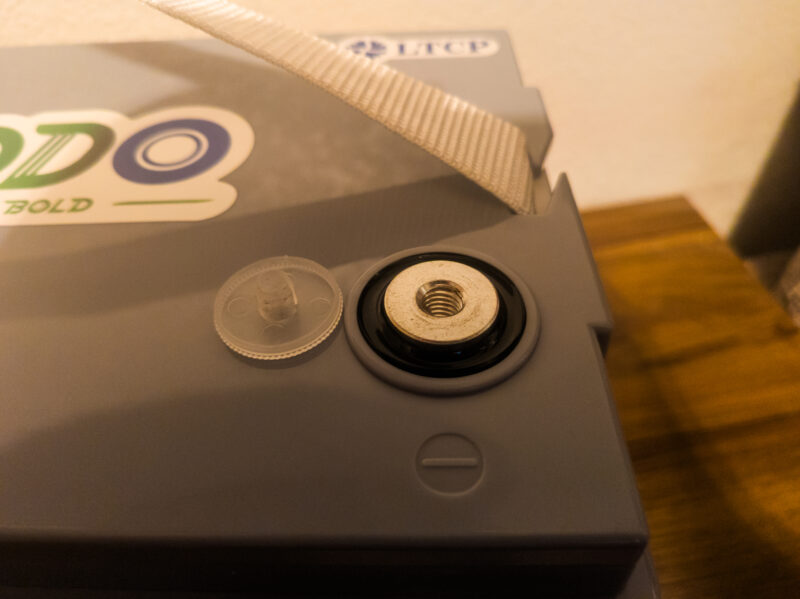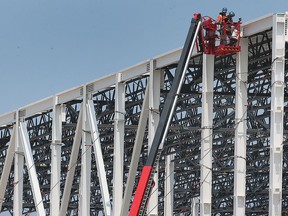Sign up for daily news updates from CleanTechnica on email. Or follow us on Google News!
A few months ago, I reviewed Redodo’s miniature deep cycle battery. I was impressed with not only the battery’s impressive output and energy storage, but with how small they were able to get it. The end result is that you’d be able to double if not quadruple your energy storage in the same space, making this a slam-dunk purchase for anything from RVs to trolling motors.
Recently, we got a look at the company’s full-size offering, this time with cold weather protection. Long story short, I’m impressed with it, but let’s take a deeper look!
What Is It?
For those unfamiliar, a deep cycle battery is a battery you’d use for modular energy storage. These have been around for decades, with most batteries in the past using a cheaper lead-acid battery chemistry, like what you’d find in an ICE vehicle’s 12v battery. Deep cycle batteries differ from standard automotive starter batteries in that they’re optimized for longer cycles with lower power output instead of designed for a quick high-power jolt.
Deep cycle batteries are used in a variety of settings, powering RVs, boat trolling motors, amateur radio stations, and even golf carts. Lithium batteries are rapidly replacing lead-acid batteries because they offer several very important advantages.
The biggest advantage is longevity. Most lead-acid batteries struggle to last longer than 2-3 years before they stop storing energy. I’ve known many RVers who replace their batteries almost every year because they forgot to trickle charge them during winter storage, and they just see buying new house batteries every spring as part of the expense of operating an RV. The same is true in many other applications where the lead-acid batteries get exposed to the elements and sit unused between fun days.
Another big thing is weight. Redodo’s batteries are exceptionally light, making it easier not only for men to haul around and install, but making possible and easier for women and even older children to use effectively.
Safety is another big one. Gassing, leakage, and other things make lead-acid batteries problematic. Sometimes, they leak battery acid and ruin things or injure people. If not properly ventilated, they can explode, throwing dangerous acid everywhere. Some people even intentionally misuse battery acid to attack people, causing lifelong pain, suffering, and disfigurement for many victims (who are often women being targeted by men who take an “If I can’t have you, nobody can” attitude). Lithium batteries don’t carry any of these dangers.
Another very important advantage to lithium deep-cycle batteries is that they basically have double the usable capacity compared to lead-acid ones. A deep-cycle lead-acid battery that gets run down regularly will rapidly degrade, while a lithium battery can survive many more deep cycles before degradation would become a problem. So, you don’t have to worry about actually using lithium batteries until they’re dead (the built-in BMS stops them well before they’d be damaged).
Redodo’s Battery
This latest battery the company sent us for review has all of the above advantages in a very neat package. It’s not only lighter than many lithium deep-cycles I’ve tested, but it’s got a decent carry strap that folds out of the way. It also comes with a variety of connection methods in the box, including screws to attach to wires and screw-in battery posts to use with clamps. This allows the battery to basically drop-in replace a nasty lead-acid battery with minimal work and likely no modifications to the RV, boat, or other thing that uses it.

As usual, I hooked up a power inverter to pull maximum rated current. Like the other one we tested from the company, this battery performs as specified, so you don’t have to worry about that.
You can find full specifications and features on Redodo’s website, and the price is $279 (as of this writing).
The biggest thing is that this smaller battery from Redodo is that it gives you 100 amp-hours of storage (1.2 kWh). This is the same energy storage that a typical lead-acid deep-cycle battery gives you, but it’s far lighter. This is pretty impressive, especially for the price, which is a lot cheaper than the more compact offering we tested earlier this year.
There is one downside to lithium batteries in these deep-cycle jobs, though: cold weather. Sadly, many lithium batteries can cut out or be damaged if you expose them to cold temperatures. But, Redodo thought about this ahead of time, and this battery has a smart BMS system that monitors temperatures. If the battery gets cold-soaked and drops to freezing, it will cut off charging. If it gets even colder and temperatures would cause problems with discharge, it cuts that off in plenty of time, too.
This makes the battery a good, economic choice for applications where you aren’t planning on freezing temperatures, but could inadvertently encounter them. If you plan on cold weather use, Redodo also has a battery with a built-in heater so they’ll even work in harsh winter conditions.
Redodo Has Decent Documentation, Too
Another great thing about this battery is that it comes with decent documentation. Unlike what you might get at a big box retail store, Redodo doesn’t assume you are an expert when you buy one of these deep-cycle batteries. The manual gives you all of the vital information you need on charging, discharging, connecting, and setting up a high-power or high-capacity battery system.
You can connect up to four batteries in parallel and in series, for a maximum of 48 volts and 400 amp-hours (@48 volts), or in other words, build up to a 20 kWh battery system. Not all users will want this kind of power, but the option is there if you want to build almost anything. You obviously need to follow normal precautions for low-voltage electrical work, but beyond that, Redodo doesn’t assume you’re an RV mechanic or expert low-speed angler!
Even better, the Redodo battery’s manual and quick start booklets come in a water-resistant pouch with a zipper so that you can keep the documentation handy after installation in an RV or other harsh environment, and store it right there with the battery. So, they really did think this product through, from start to finish.
Featured image by Jennifer Sensiba.
Have a tip for CleanTechnica? Want to advertise? Want to suggest a guest for our CleanTech Talk podcast? Contact us here.
EV Obsession Daily!
I don’t like paywalls. You don’t like paywalls. Who likes paywalls? Here at CleanTechnica, we implemented a limited paywall for a while, but it always felt wrong — and it was always tough to decide what we should put behind there. In theory, your most exclusive and best content goes behind a paywall. But then fewer people read it!! So, we’ve decided to completely nix paywalls here at CleanTechnica. But…
Thank you!
Iontra: “Thinking Outside the Battery”
CleanTechnica uses affiliate links. See our policy here.




